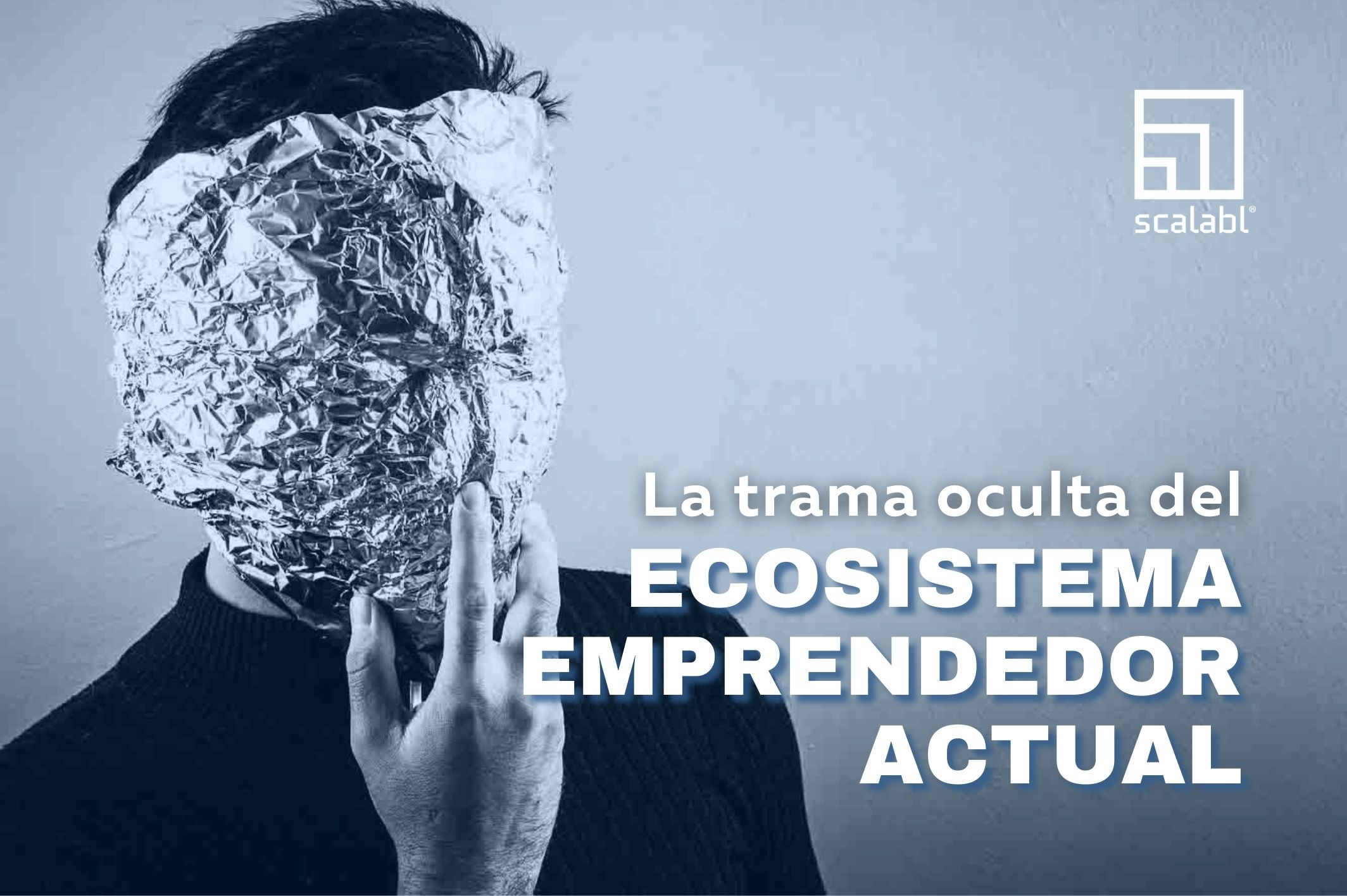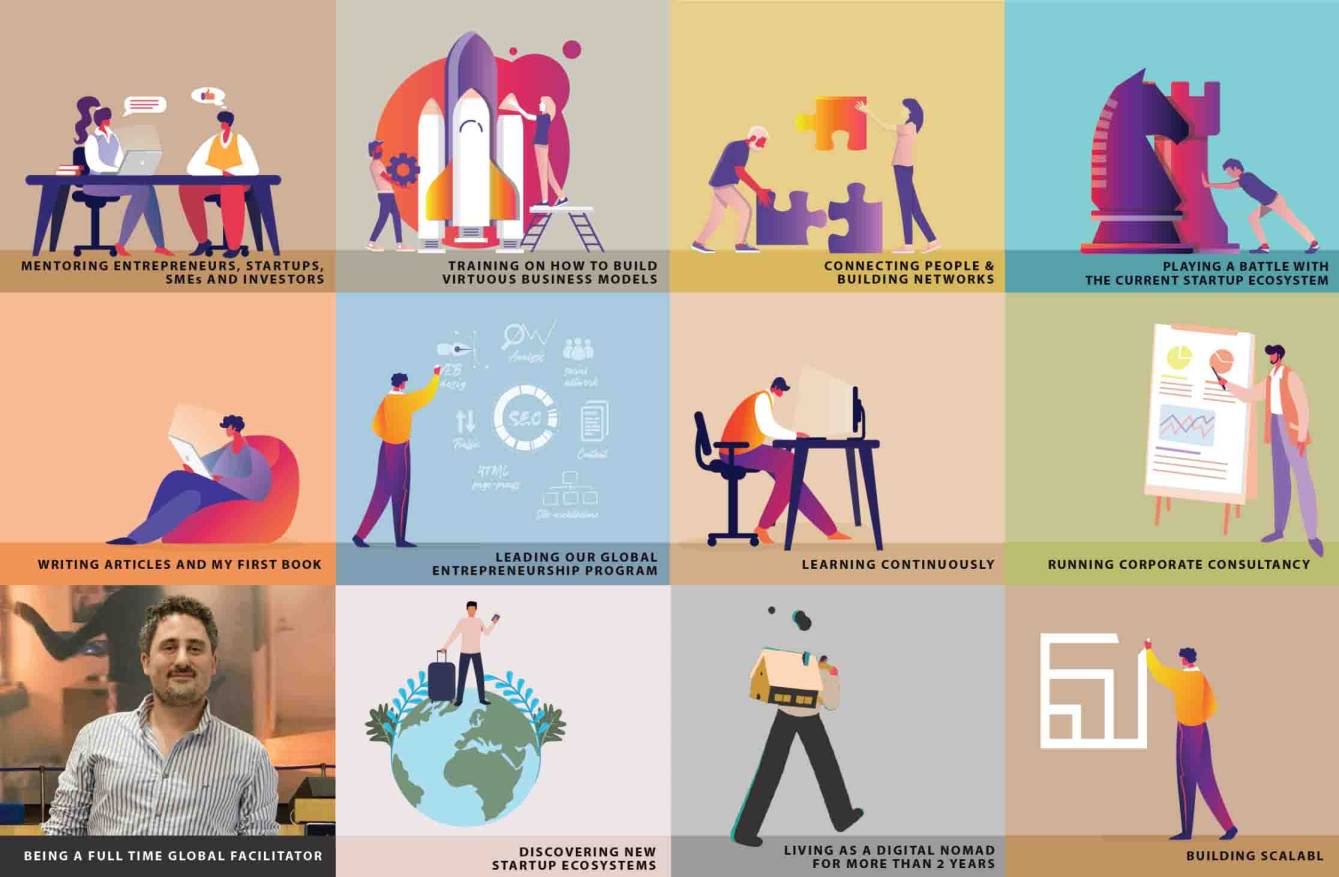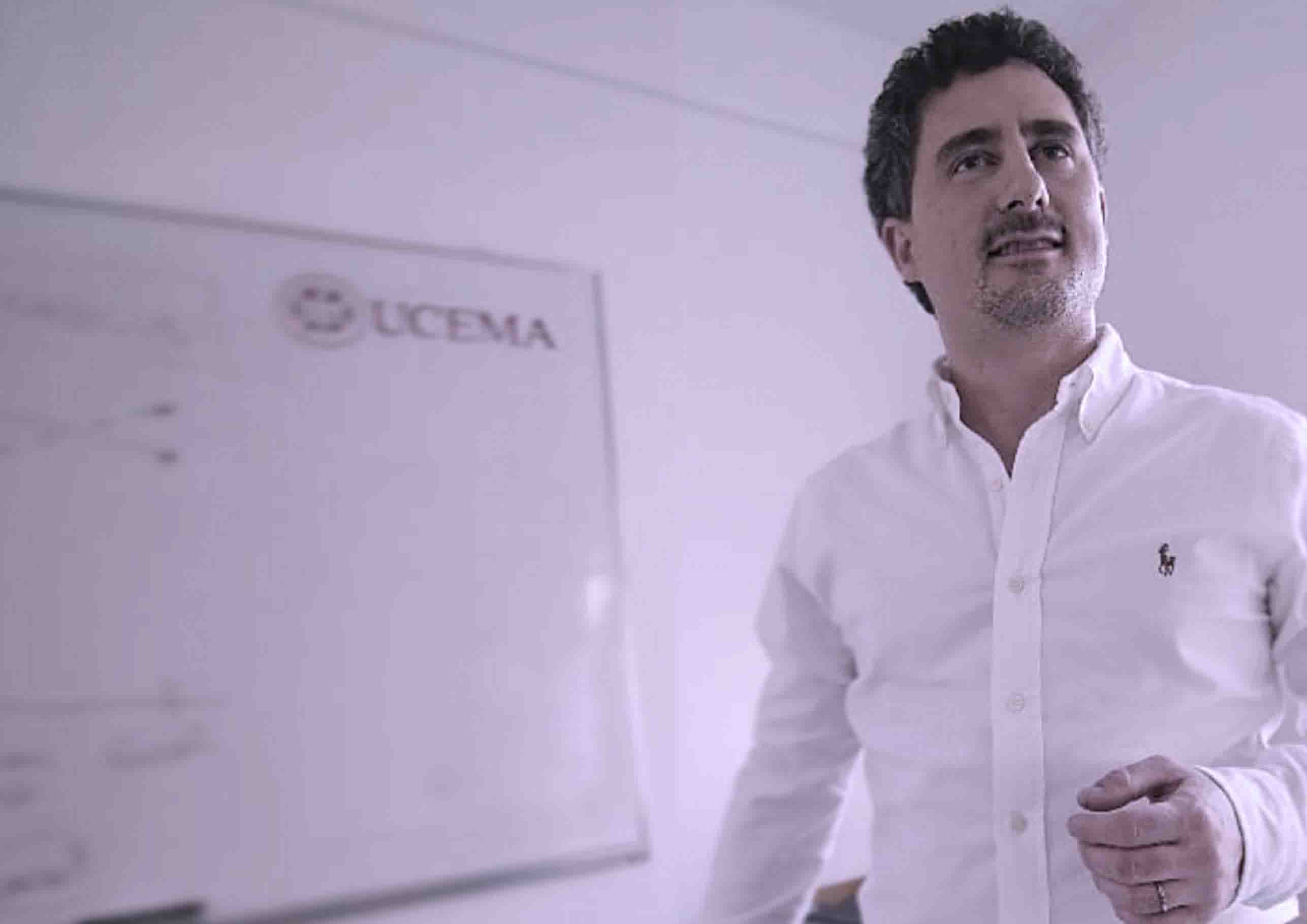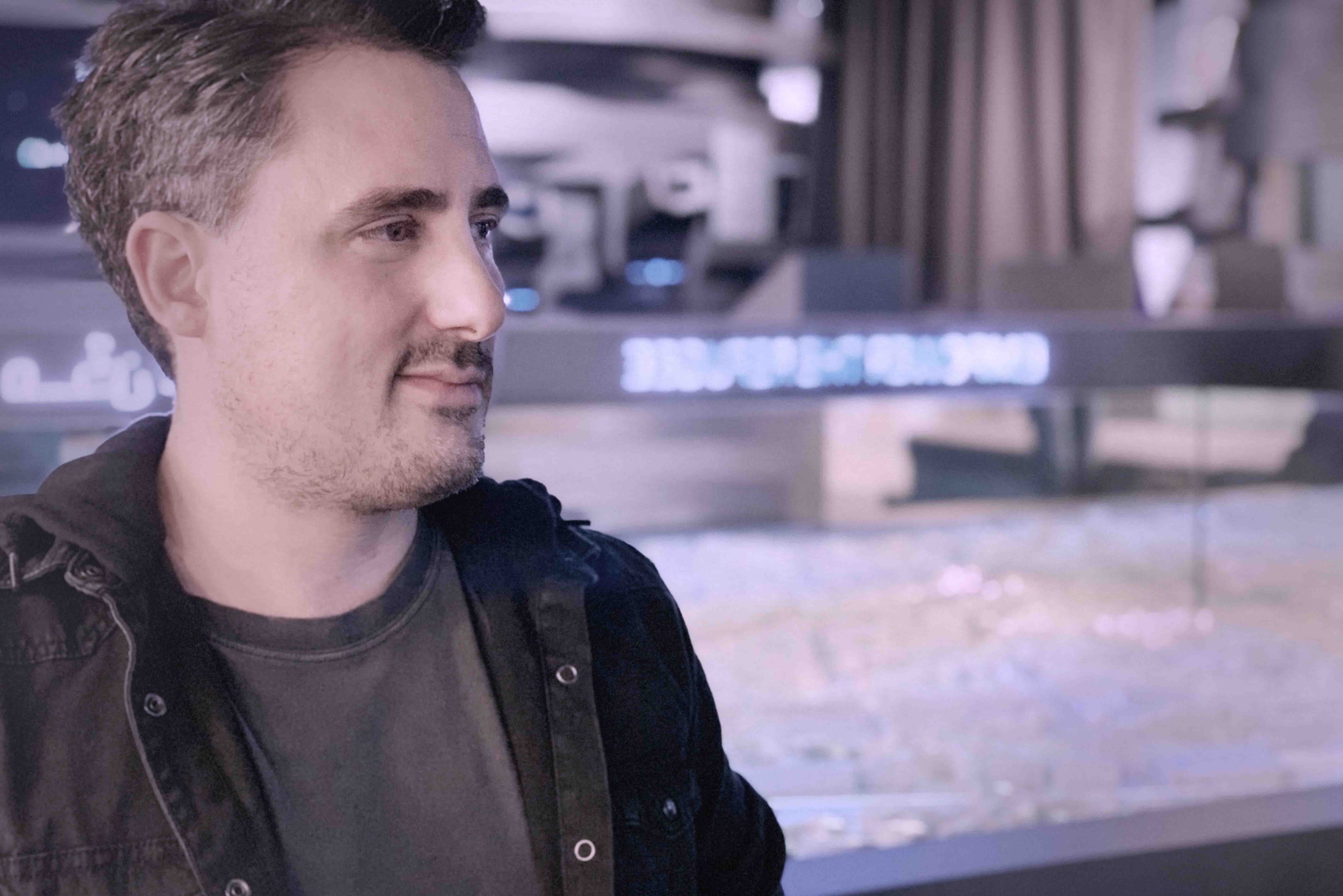
Francisco Santolo tells what his professional career was like and how the MBA marked his path in the entrepreneurial ecosystem. At the age of 26, Francisco was Regional Marketing Manager at Natura, and he completed a Master's in Administration at CEMA University. From the MBA to today, he says, opportunities came one after another and led him to focus on the entrepreneurial ecosystem as he is now CEO & Founder of Scalabl.

What was the journey of five professionals who did their MBAs in the country five years ago. What did the program give them and how did their career expectations evolve. The story of Sergio Baravalle, UTDT graduate: “The richness of the MBA is rooted in learning how to be comfortable with uncertainty”, he says, and highlights that Di Tella “promotes community.”
Whether it gives an automatic rise at work, whether it connects with the world, whether it’s a must to grow in a multinational, whether it improves professional and even personal abilities or it’s just another course. Five graduates from different local universities that got an MBA in 2012 tell us in what ways their work, their vision, their projects and their job perspectives change since then. What did the MBA leave to them, five years later.
In 2011, Florencia Vieta went up to the IAE, Austral University’s business school, to find out about a part-time MBA sponsored by DuPont, the company she was working for as a Strategical Analyst at the time.
Moved by her will to go back to school, the recommendations of colleagues but, above all, the possibility of an exchange abroad, Vieta didn’t take long to rearrange her priorities and quit her job to pursue the MBA full-time, financed by herself.
“I quit my job to take advantage of the experience of being committed 100%. When I saw that the IAE offered the possibility of an exchange with the London Business School, I was clear of doubts,” highlights the current Financing Solutions leader of General Electric Healthcare for Argentina, Chile, Bolivia and Uruguay.
Vieta studied for a year at the IAE and six months in England, an experience she highlights and strongly recommends to enhance one of the key aspects offered by the masters: “The networking is the most valuable part of the MBA, added to the experience itself, especially in an international context. You become part of a circle with alumni and visitors from other universities,” she says and exemplifies that, up to this day, she is still professionally in contact with the fellow colleagues she met abroad.
On her return to Argentina, Vieta didn’t take long to relocate herself in the labor market: first, with her own venture, and then she was contacted by GE’s Human Resources, where she works today. “Having an MBA was a requirement to enter at the position I’m at now,” she points out.
Another contribution that makes a difference at her work today is not so much the addition of knowledge, given that her degree was a bachelor’s in business (University of La Plata), but Vieta does make emphasis on the methodology she learned during the course. “That specific method gave me another dynamic and perspective to take on situations. My job today is to analyze and investigate businesses and the whys, and the MBA makes me question myself, and focus on details I otherwise wouldn’t have implemented,” she asserts.
Change of perspective
Lawyer (UBA) and current Director of Legal & Government Relations at MercadoLibre, Gabriela Colombo already had an executive position in the same company when she started her part-time MBA at the University of San Andrés. “When I got to management, I felt I lacked tools I hadn’t received during my graduate and post-graduate studies. Besides the proper tasks of my profession, new ones were added, like people, projects and process management,” comments Colombo.
Chosen by MercadoLibre to obtain financing of up to 75% of the program, Colombo studied two years for her masters, and in the meantime became a mother while continuing to work. “The combination of theory and praxis at San Andrés matched my profile. Going straight to the case method wasn’t working for me. There were other things that some universities assume you already know but I didn’t have, and I valued that mix of theory and case challenge.
About the importance of the MBA, Colombo defines it as “a roadmap for a business environment” and highlights its management focus based on people. “I came looking for tools to manage and took a lot more than that: the MBA changed my mindset, the perspective from which I exercised my profession. It gave me a dictionary to understand in which language the people in Finance or in Tech talk, to understand what moves them and why in a project some might push in one direction and the others in the opposite one.
From wanting to be a criminal attorney at the start of her career to exercising a corporate role today with transversal functions for the whole of Latin-American at MercadoLibre, Colombo affirms that the capacity to adapt to the possibilities that came up was key for her, a piece of information which enhanced her masters.
Law is at a crossroads, a change of paradigm because of the impact of technology and mi focus is on the innovation of practice in the business environment,” she points out. “You acquire an outlook on engineering, on costs, how it impacts what you do at an organizational level, how the way you work will impact positively or negatively in another area. All of that is the MBA,” she asserts.
Nevertheless, Colombo cautions that this type of masters is not something that can be studied at any point of a career, but that you have to be professionally ready for it and do it “when some functions are being assumed which exceed the merely technical.” And follows up: “To do it early is to waste time and money, and it really acquires value when you are a solid professional in your area first and if your intention is to go towards broadening your scope of practice. In that case, the MBA is almost necessary for a professional path.”
A state biologist
The collective imaginary would place a molecular biologist in a laboratory. But, in the case of Sergio Baravalle, destiny took him down a very different road. From working at a small business in the commercialization of molecular-biology products, Baravalle thought of transcending the merely technical aspects of his area and, instead of specializing, he started to look for tools in order to see the forest besides the trees.
“I lacked training in the soft skills I had dragged from my mayor. Within the company I realized I had very little for a background and if I wanted to grow I needed to learn, above all, about strategy and business management,” says Baravalle.
From acquaintances and colleagues who did the MBA at Di Tella University and with profile referents such as Estanislao Bachrach, Baravalle decided to finance his studies and start the course’s part-time program. By then, Baravalle was also taking part in a project between Argentina and the U.S. to develop a tumor vault, for which he thought it useful to broaden the specter of his knowledge at an organizational level.
From his point of view, the richness of the MBA is rooted in “learning to feel at ease in uncertainty.” “Exposing myself to my ignorance of almost all of the disciplines to which I was exposed gave me a measuring of the ignorance, which, at the same time, created a tension that I solved by seeking the support of the team,” he says and highlights that Di Tella “promotes community.”
Shortly after, the thesis he co-wrote with a colleague on renewable energies served as a stepping stone to win a Fulbright scholarship and study agronomic engineering and Bio-systems at Washington State University, U.S.
During the process of elaboration of his new thesis, based on sustainable development for the use of farming waste – devised for the Province of San Juan – Baravalle won another scholarship, this time to study a post-graduate at Supply Chain Management at MIT.
From this project based on ‘Bioequality’, Baravalle received an acknowledgement from the German government in 2014 as one of 25 young people with the most potential at a worldwide level on sustainable development, he tells us.
Baravalle is currently studying a master’s degree on Renewable Energies at the Universidad Tecnologica Nacional and works for the Ministry of Social Development, where he applies theories of triple impact development, through the creation of an area of “inclusive chains of value.”
“The MBA gave me a transversality that I would never have achieved if I had remained in such a specific a career as molecular biology. It gave me a strategic vision on business and tools to jump from one discipline to another I now use in my work,” he highlights.
With just 26 years of age, Francisco Santolo was promoted from coordinator to Marketing manager at Natura. In search for more, this Universidad de Cema graduate in Economics took advantage from his company’s willingness to finance part of the course and once again chose his Alma Mater for a part-time master’s degree in Management.
“In graduate studies you receive the concepts without having actually lived them. At the MBA, with more experience, you see the subjects with much more depth, maturity and you prioritize on what you’re interested in,” asserts Santolo and highlights “the approach to entrepreneurial knowledge” as key for his present.
CEO of Scalabl, a startup accelerator with a network of over 100 enterprises and 240 entrepreneurs, Santolo nowadays is in charge of his company’s global expansion, with his sight on Mexico, Arab Emirates and India.
“We offer help to any entrepreneur be it a multinational’s regional director or a housekeeper: we give them a practical two-month course at a real company and they come out of it with a functioning company,” says Santolo.
From the MBA to this point, he says, the opportunities rose up one after the other and led him to focus on an entrepreneur’s ecosystem- Today, he is decided to “take this new entrepreneurship development model to the world.”
Done with the MBA, Santolo took part in General Management at the Kellogg School of Management and then Entrepreneurship at Stanford. At the same time, he started to help entrepreneurs for free.
“And that’s how several of them offered me shares from their businesses and with that I gained the courage to be a full-time entrepreneur,” says Santolo, whose path later took him to BRF, a Brazilian company, who sent him for over a year to Dubai as a regional Marketing director.
Currently, Santolo is taking part in Harvard’s General Management program, alongside 140 world leaders and he propounds that, at a distance, there is one thing he would have taken a better advantage of during his MBA experience.
“At the time I didn’t have the sufficient maturity to realize that the most important thing is relationships with people and opening up to opportunities,” but her asserts that the master’s was a “before and after” in his career.
Bountiful society
Current director and partner at the X Project company, Carlos Fernando Castro is dedicated to software projects management at a macro level and works with issues that range from banking operations to auditing, money-laundering prevention and operational risk.
For this industrial engineer (UBA), the “company’s macro vision” that the ITBA’s master’s on Strategic and Technological Direction provided him with was key to learn the tools of “planning, execution and management.”
“Engineering teaches you how to solve problems focused on very specific technical areas ,” he comments.
Five years ago, Castro worked as a project engineer at Tecna’s commercial department, a company dedicated to the gas and oil market. That’s where he met colleagues who advised him to take this master’s in particular.
Through these references, added to the program and the teaching staff, Castro arrived at ITBA in the search to broaden his field of knowledge about his company with a focus on technology.
He studied there for two years, with his own financing at first and, them, with the financial support of X Project, with whom he introduced a small-businesses program for the State. Castro highlights that the master’s had a huge influence on his current work situation, not only because he started to collaborate with the company of which he is now a partner, but because he is much more well versed on general corporate mechanics.
“Nowadays I’m constantly developing, and this is part finances, projects and part knowledge in banking operations” he explains and highlights the MBA as a tool to “manage projects within a systematic framework, with a common ground to all industries.”
According to his current business view, Castro’s project in the future may imply some changes of work area. “I would like to be able to develop a self-sustained company, with replacement teams and a structure that can last over time,” he concludes.







